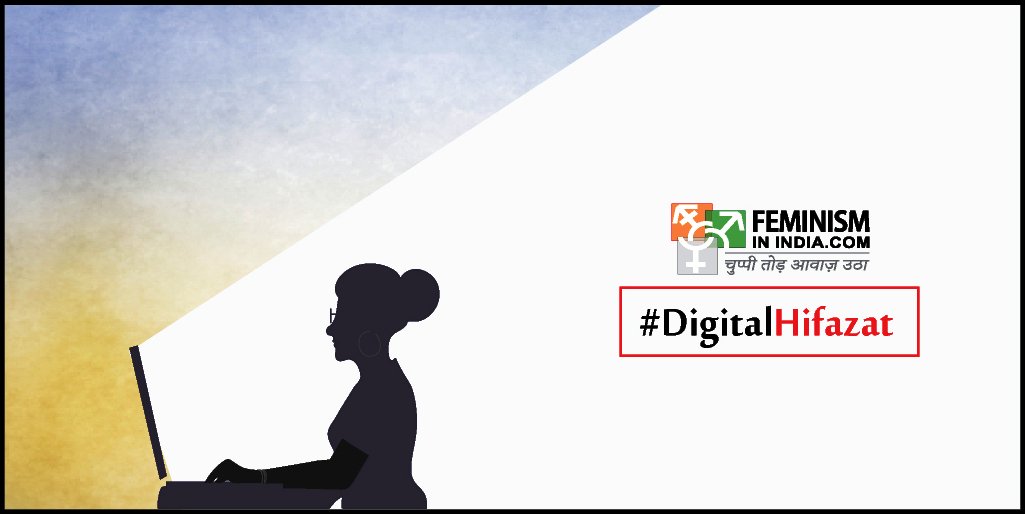This is a guest post by Japleen Pasricha, founder and director of Feminism in India and an Access Now grantee.
In India, as elsewhere all over the world, there is rampant online harassment of women and people with marginalized genders and sexualities, standing in contradiction of the internet’s promise for equal opportunity and neutrality. What we have today is a flawed internet that reflects the offline world we live in, where women and members of marginalized communities are abused, harassed, threatened, stalked, and violated on a daily basis.
Cyber violence against women or cyber “VAW” includes, but is not restricted to: cyber stalking, cyber bullying, cyber harassment, identity theft, breach and violation of privacy/confidentiality, voyeurism, and image-based sexual violence, popularly known as “revenge porn.”
These are all serious problems in India, yet women and other targets lack the understanding and support to respond effectively.
The problem: women don’t know their rights
As founder and director of Feminism in India.com, an award-winning inter-sectional platform, my goal is to help amplify the voices of women and members of marginalized communities, who are too often silenced. My recent research report, “Violence” Online In India: Cybercrimes Against Women & Minorities on Social Media, found that women in India have trouble thinking about the attacks they experience on social media platforms as “violent.” They are more likely to ignore or block their assailants than to report them, while participating less in the online space themselves. Many lack awareness of their legal rights as victims of cyber stalking and other crimes.
To support victims and stop abuse, we need to educate women, communities, and law enforcement agencies, helping them to understand the importance of prosecuting, not ignoring, individuals who use social media as a tool to perpetuate violence against women and minorities.
Key findings from the report:
- Online abuse is a serious issue in India, affecting more than half of survey respondents, yet women and other targets lack support and understanding to respond effectively.
- Thirty-six percent of respondents who had experienced harassment online took no action at all. Twenty-eight percent reported that they had intentionally reduced their online presence after suffering online abuse.
- Some respondents found it hard to think of online harassment on par with violence, even though 30 percent of those who had experienced it found it “extremely upsetting” and 15 percent reported that it lead to mental health issues like depression, stress, and insomnia.
- Though avid users of social media, respondents lose trust in popular platforms because of harassment against them or someone they know. Over half want stricter community standards for content, and the ability to escalate reports of abuse.
- Mechanisms to report abuse on social media platforms fall short. Victims are more likely to block abuse than to report it, yet blocking is ineffective against organized, sustained campaigns using multiple accounts.
- Assailants readily exploit mechanisms to report abuse, alleging their victims have violated platform guidelines to disable their accounts.
- Thirty percent of survey respondents said they were not aware of laws to protect them from online harassment.
- Only a third of respondents had reported harassment to law enforcement; among them, 38 percent characterized the response as “not at all helpful.”
How we can help: raise awareness
Online violence against women and marginalized individuals should be taken as seriously as offline abuse. It has adverse effects on the victim’s emotional well-being, and can also translate into physical danger. Because of the public nature of online abuse, the reactions of friends, colleagues, and the media can exacerbate the trauma. Yet authorities often advise women to refrain from using their real names or posting pictures of themselves, which silences the victims rather than the abusers.
We’ve launched a new campaign – #DigitalHifazat – that aims to raise awareness about this problem and help develop solutions that empower people. Here’s our shareable video introducing the campaign:
Through the campaign, we are exploring how gender-based violence online affects the participation of women and marginalized genders and sexualities in online spaces, what counter-strategies are being developed, and what the possibilities are for cross-disciplinary collaboration to ensure a safe online environment for everyone.
When a threat turns to violence, it has a devastating impact on women and members marginalized groups. We hope you join us in our effort to ensure that everyone has the chance to access, create, and share content freely online without being targeted and harmed by gender-based attacks. Our campaign site has facts to share online, such as how to report an online attack in India. We also invite you to share your personal story of online harassment, using the tag #DigitalHifazat. Together, we can help create a safer internet for all.
